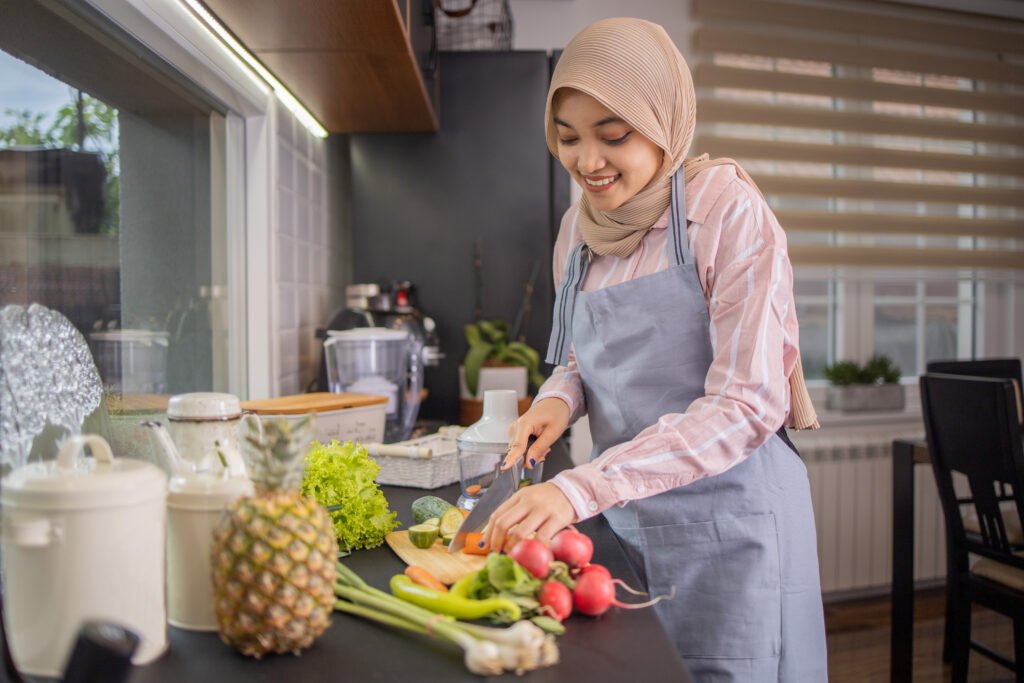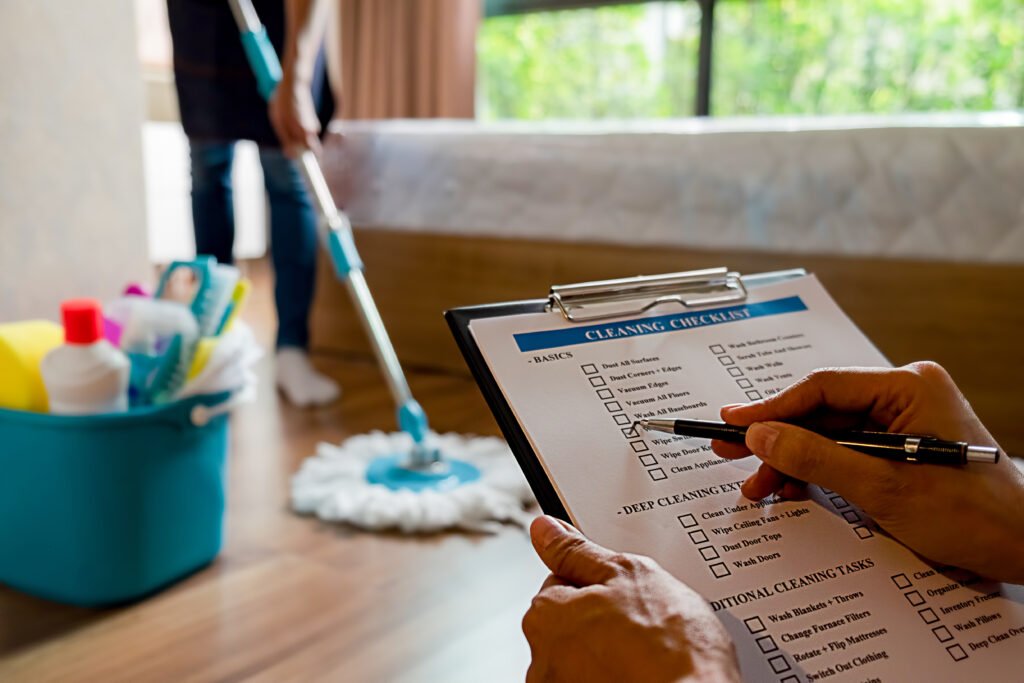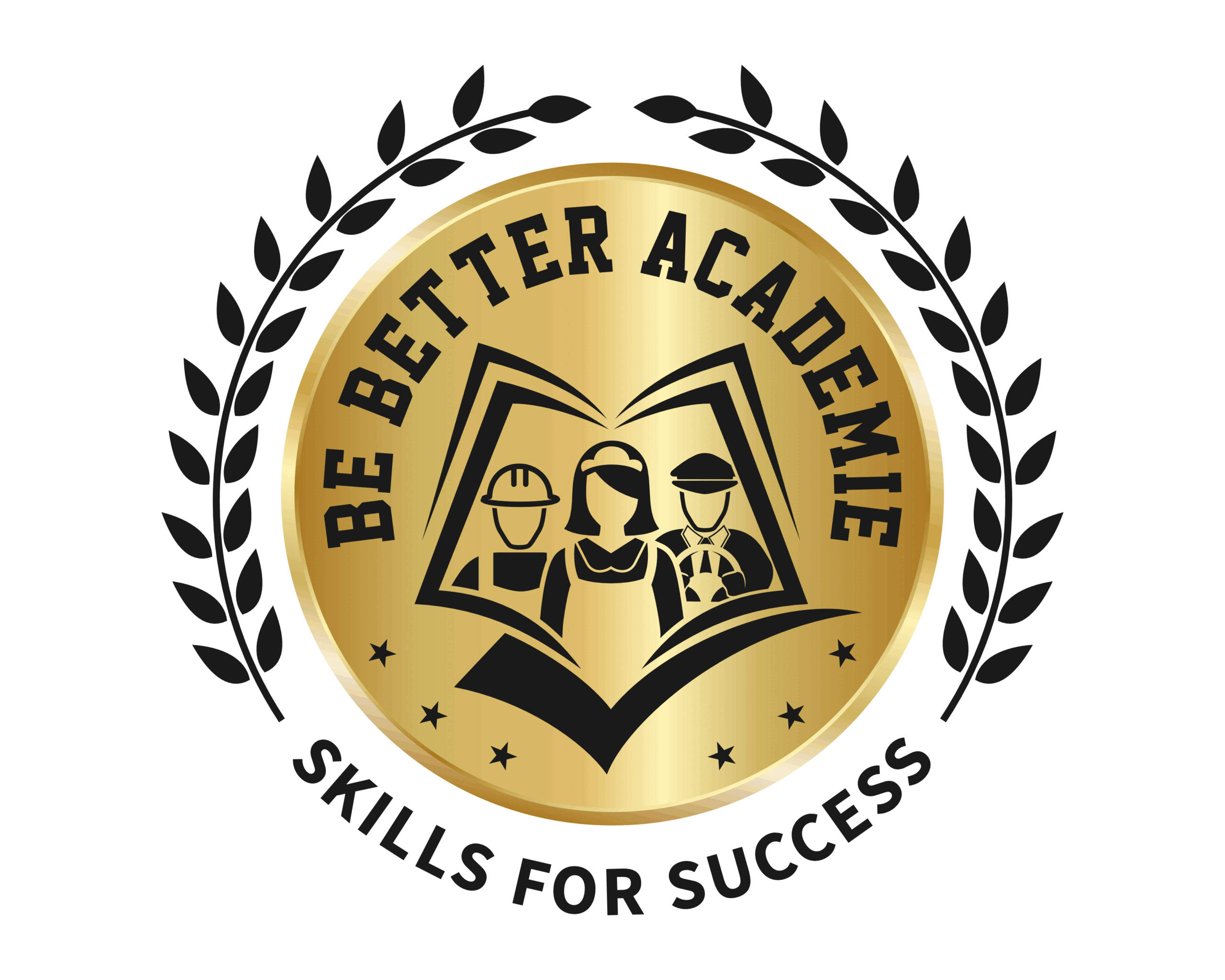- +971 54 749 5520
- sales@bba.ae
Be Better Academy Curriculum: An Intensive Two-Week Program for Mastering Domestic Excellence
This comprehensive course is specifically designed for domestic workers seeking to master essential skills at the highest level of professionalism. It aims to equip participants to excel in their roles and deliver exceptional service in domestic care. The program combines a balanced mix of theoretical instruction and practical training, ultimately culminating in a rigorous written and practical examination to assess participants’ skills and knowledge
Theoretical Modules:
The Theoretical Modules focus on providing essential knowledge to household helpers, emphasizing safety, professionalism, and skill development. Key topics include safety standards, first aid, child and elderly care, personal hygiene, and legal regulations. This foundational training ensures helpers are well-equipped to deliver high-quality, safe services, reducing risks for families and promoting trust in household care. By focusing on these core areas, the course aims to raise the standard of domestic help in Dubai and the UAE, establishing the region as a global leader in household services.


Practical Modules:
The Practical Modules focus on hands-on training to equip household helpers with the essential skills needed for effective and safe service delivery. Participants will engage in daily task simulations, including child and pet care, emergency response training, meal preparation, and organizational skills. This practical training ensures that helpers can apply safety protocols, manage household duties efficiently, and respond to emergencies confidently. By providing real-life scenarios, the course enhances the competency and professionalism of helpers, aligning with the course’s goal to set new standards for household services in Dubai and the UAE.
Soft Skills and Personal Development:
The Soft Skills and Personal Development module focuses on enhancing communication, emotional intelligence, and professional conduct. It aims to improve interpersonal skills, conflict resolution, time management, and adaptability, ensuring household helpers can work effectively in diverse environments. This training fosters a positive attitude, responsibility, and respect for cultural differences, helping helpers build trust and professionalism while contributing to a harmonious household atmosphere.
Daily Schedule
Day 1-2: Introduction and Theoretical Basics
- Safety and hygiene regulations
- Theoretical units for the safe handling of cleaning agents and chemicals
- Hygiene standards in the household, special regulations for kitchens and bathrooms
- Important safety rules when working with electrical appliances and household appliances
- Practical exercise: Use of cleaning agents and equipment under safety aspects
- First Aid and Emergency Management
- Basics of first aid (e.g. wound care, first aid for burns, first aid for falls)
- Theoretical exercises on emergency management and response to household medical emergencies
- Practical Exercise: Simulation of First Aid Situations
Day 3-4: Childcare and care
- Child health and childcare
- Theoretical basics for the care and nursing of children of different ages
- Health conditions (e.g. vaccinations, first aid for children)
- Practical exercise: Babysitting and conflict resolution techniques when dealing with children
- Dealing with infants, children and teenagers
- Special Care Requirements for Infants and Children in the Growth Process
- Communication and conflict resolution with young people
- Practical exercise: Simulation of care and nursing in an age-appropriate environment
Day 5-6: Dealing with senior care
- Dealing with the elderly
- Theoretical knowledge of age-appropriate care and health problems in old age
- Practical exercises for mobilisation, care and communication with seniors
- Special needs of seniors in the household (e.g. in the case of dementia or movement restrictions)
- Dealing with pets
- Care of pets (feeding, hygiene, health)
- Practical exercise: Caring for pets (e.g. dog, cat, smaller pets)
Day 7-8: Housekeeping and cleaning management
- Household cleaning: theory and practice
- Cleaning techniques for different types of rooms (kitchen, bathroom, living room, bedroom)
- Use of various cleaning agents and equipment
- Practical exercise: Cleaning in a real household environment (e.g. kitchen, children’s room)
- Household management
- Coping with everyday situations
- Care of laundry and textiles
- Efficient and predictive purchasing of household products
- Organization and time management in the household
- Learning efficient workflows and scheduling
- Hands-on exercises to structure daily tasks and prioritize
Day 9-10: Cooking techniques and food preparation
- Preparation of standard dishes for different age groups of different cuisines with a focus on Arabic cuisine
- Cooking for children, adults and seniors: nutritional value and preparation recommendations
- Practical Exercise: Cooking Simple, Healthy Meals
- Storing food correctly and refrigerator zones
- Theory: How to properly store food in the refrigerator and use the zones effectively
- Practial exercise: organizing food in the fridge and preparing for meals
Day 11-12: Soft skills and professional etiquette
- Communication and teamwork
- Techniques for effective communication within the team and with employers
- Practical exercises to improve communication in stressful situations
- Professional etiquette and personal hygiene
- Theory and practice on professional personal hygiene and correct behaviour in the working environment
- Practical exercises: Correct table decoration, dealing with guests and professional etiquette
- Stress management and conflict resolution
- Theoretical basics for stress management in everyday working life
- Hands-on conflict resolution exercises between team members or with family members
Final examinations
At the end of the two-week training, a comprehensive written and practical exam with a total duration of 3 hours is carried out to test the knowledge and skills learned by the domestic helper. The exam covers all essential areas of education, including childcare, emergency management, care for the elderly, household safety precautions, and garden and outdoor care.
Only those who successfully pass the exam will receive a certificate, thay confirms the high quality of the training and will ensure that the domestic helper meet the highest standards in the care of families, children, pets and the elderly.
Daily Schedule:
Safety and hygiene regulations
Theoretical units for the safe handling of cleaning agents and chemicals
Hygiene standards in the household, special regulations for kitchens and bathrooms
Important safety rules when working with electrical appliances and household appliances
Practical exercise: Use of cleaning agents and equipment under safety aspects
First Aid and Emergency Management
Basics of first aid (e.g. wound care, first aid for burns, first aid for falls)
Theoretical exercises on emergency management and response to household medical emergencies
Practical Exercise: Simulation of First Aid Situations
Day 3-4
Day 5-6
Day 7-8
Day 9-10
Day 11-12
